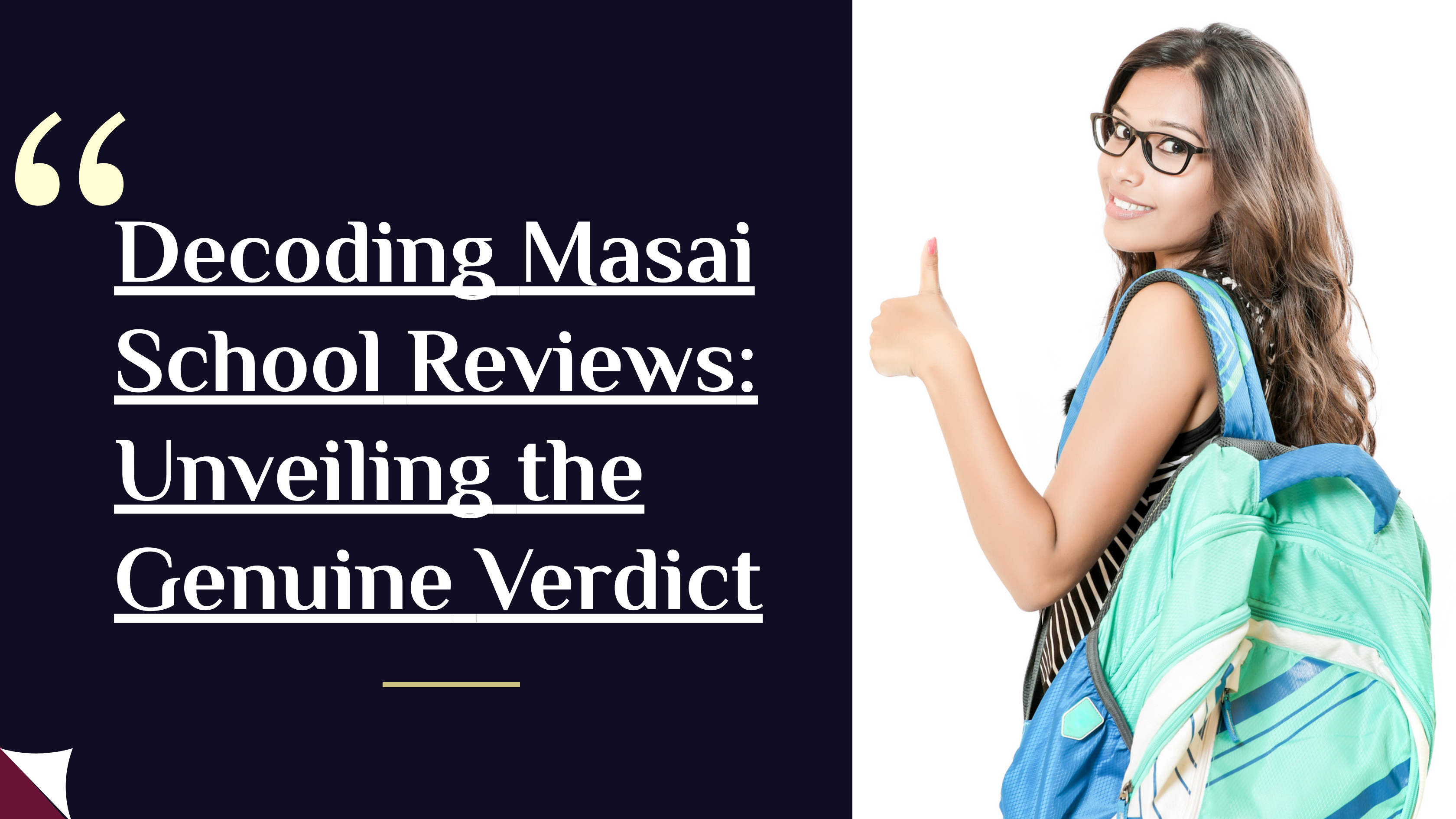
masai school reviews
Inspired by the East African tribe ‘Masai’, who thrive on skill development as opposed to formal education and degrees, Prateek Shukla’s Masai School is enabling aspirants to go beyond their educational background, the boundaries of conventional classrooms to launch their careers with hands-on training in an outcome-based learning model. Apart from this, there are several online learning platforms and coding boot camps. Therefore, potential students and curious and prospective skilled professions invariably resort to reviews for gaining insights before zeroing on the final course. The question that arises then is whether Masai School reviews are genuine. Let’s delve deeper into this topic to decipher the authenticity of such reviews.
Emergence of Alternative Education
Before diving into the credibility of Masai School reviews, it’s essential to acknowledge the broader context of alternative education. Traditional universities and colleges have long held the monopoly on education, but the advent of online platforms and specialized boot camps has disrupted this norm. Masai School is one such disruptor, offering an intensive and immersive coding program that claims to equip students with the skills needed to thrive in the tech industry. This disruption naturally invites scepticism, and thus, reviews become a critical tool for interested parties to gauge the actual value of the program.
Gamut of Reviews
When it comes to evaluating the authenticity of any review, it’s important to understand the entire range of opinions that one might encounter. Reviews may vary from highly positive to extremely negative, with a range of nuanced experiences in between. A genuine review platform will reflect this diversity of perspectives, offering a balanced view of the program. As an information seeker, it is worthwhile to sift both the positive and negative reviews with an open mind, keeping in mind that individual experiences can vary widely. Also, individual prejudices need to be removed from one’s mind to arrive at a genuine conclusion.
Factors responsible for skewed reviews
Individual objective:
A key factor impacting reviews is individual objective & expectations. Some students might enrol in Masai School contemplating a seamless path to a high-paying job while others might join with an aim to advance their genuine passion for coding. The misalignment between expectations and reality can lead to skewed reviews.
Individual Effort:
The success of any educational program is closely tied to the quantum of effort put in by a student. While Masai School might provide a structured curriculum, the students would not have attained the desired outcomes might leave negative review, ignoring their own contribution to the outcome.
Quality of Support:
Another aspect that greatly influences reviews is the quality of support provided by the institution. This includes mentorship, resources, and career guidance. Positive reviews often highlight the presence of supportive mentors and helpful resources, while negative reviews might stem from feelings of inadequate assistance.
Discerning Genuine Reviews
Exhaustive Experiences:
Genuine reviews tend to be detailed, explaining the reviewer’s journey, challenges faced, and triumphs achieved. These reviews can provide a comprehensive understanding of a program’s strengths and weaknesses.
Biased Tone:
Authentic reviews often strike a balance between highlighting positives and acknowledging areas for improvement. Reviews that are overly exuberant or overly critical may not paint a true picture and might be driven by ulterior motives.
Specificity:
Look for reviews that mention specific aspects of the curriculum, teaching methods, or support systems. These details indicate that the reviewer has genuinely engaged with the program.
Verification through genuine Platforms:
Trustworthy review platforms, such as Course Report, SwitchUp, and Trustpilot etc. verify the identity of reviewers and ensure that the reviews are not manipulated.
Traversing the myriad information
It is important to cruise through the plethora of information easily available through the various digital sources with discernment. Abundance of information may obfuscate the review. Hence, in addition to the reviews one should gather information about Massi School or any other educational establishment through other available sources as well.
Information on portals:
Information available on the official Masai School website are reliable and may be browsed to get acquainted with the curriculum, teaching methodology, and success stories.
Interaction with the Alumni:
It is advisable to get connected with the alumni, if possible. Alumni experiences can provide valuable insights into the program’s long-term prospects for careers and skill development.
Webinars or Workshops:
Many coding boot camps offer webinars or workshops that provide a glimpse into their pedagogy. Participation in these events can help one assess the program’s compatibility with his/ her learning style.
Conclusion:
The question of whether Masai School reviews are genuine is not a binary one. Like any educational institution, Masai School has its strengths and areas that can be improved upon. Reviews, in their diverse range, provide a glimpse into these facets. As a prospective student ought to approach reviews with a critical yet open mind set. They should look for patterns in feedback, if any, for identifying credible review platforms. An educational journey’s success is a symbiotic result of both the institution’s offerings and the student’s commitment.
The authenticity of Masai School reviews rests on one’s ability to sift through the narratives and discern the genuine experiences that resonate with one’s aspirations. An informed decision is the first step towards a successful educational journey. The claims made by Masai School in respect of the past placements may also be cross verified with the employers who find mention in their sales pitch/ USP.







